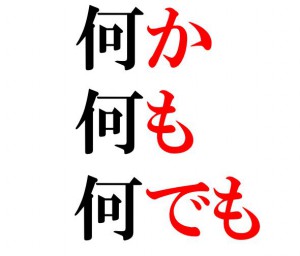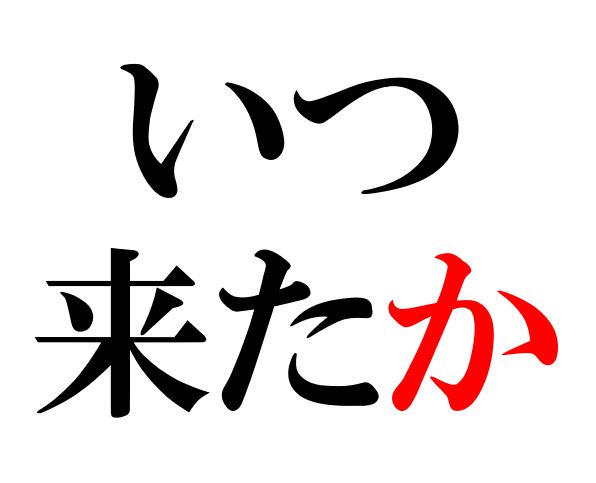Before starting the exercise for relative clauses with 「か」, please clarify any doubts you may have about the grammatical rules by referring to your grammar guidebook or dictionary. The Instantaneous Composition Method requires you to compose sentences with the target sentence pattern(s) over and over in order to use them almost effortlessly. You should already have the necessary knowledge.
- Reference
- Tae Kim’s Guide – The Question Marker
Instantaneous Composition Exercise for Relative Clauses with 「か」
This is not a translation exercise. This is the Instantaneous Composition Exercise. As if a reflexive action, try to create an equivalent Japanese sentence shortly after reading an English script. Try not to think for more than three seconds.
- Audio File
English and Hidden Japanese Scripts
| 1. | Do (you) know when I came? |
| 私がいつ来たか知っていますか? |
| 2. | (I) didn’t know when (my) girlfriend cried. |
| 彼女がいつ泣いたか知りませんでした。 |
| 3. | (I) forgot what (I) ate. |
| 何を食べたか忘れました。 |
| 4. | (I) remember what (I) said. |
| 何を言ったか覚えています。 |
[adsense]
| 5. | (I will) answer whether it’s dangerous (or not). |
| それが危険か(どうか)答えます。 |
| 6. | (I will) decide whether (I will) buy (it) (or not). |
| 買うか決めます。 |
| 7. | (I) taught (the person) who won. |
| 誰が勝ったのか教えました。 |
| 8. | (I) asked who laughed. |
| 誰が笑ったのか聞きました。 |
| 9. | (I) wrote where (I) met Ishii-san. |
| どこで石井さんに会ったか書きました。 |
| 10. | (I will) investigate where Nozaki-san died. |
| どこで野崎さんが死んだか調べます。 |
Recommended Links
How to Proceed with the Instantaneous Composition Method

Japanese Grammar Exercise: Making Offers 「…ましょうか」

Japanese Grammar Exercises: Using Question Words in an Affirmative Sentence



